However, experts say this is a misconception. In fact, surgery is not only the main treatment for many types of cancer, especially digestive cancer, but also offers a higher chance of survival if performed early and properly.
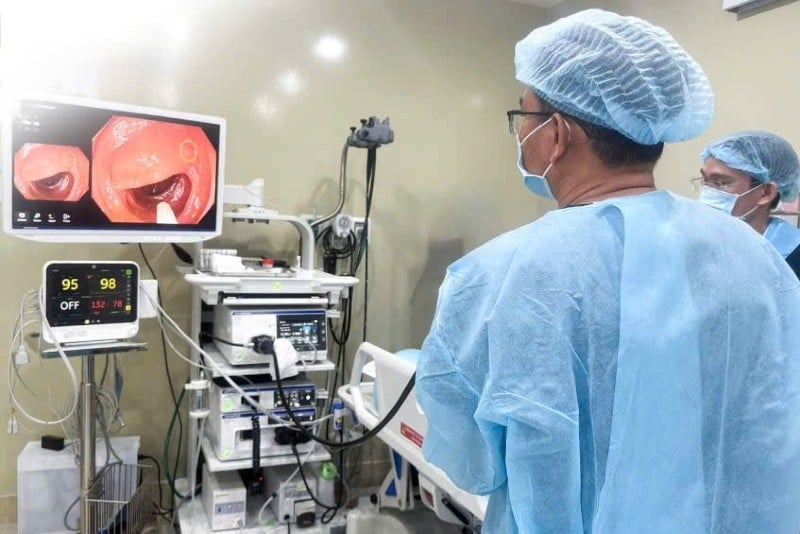 |
| Clinical practice here shows that many cases of digestive cancer detected at an early stage have been successfully treated thanks to minimally invasive endoscopic surgery. |
Doctor CKII Nguyen Quoc Thai, Head of the Department of Digestive Surgery, Center for Endoscopy and Gastrointestinal Endoscopic Surgery, Tam Anh General Hospital, Ho Chi Minh City, said that the concern that surgery will cause the tumor to rupture, releasing cancer cells into the blood or lymphatic system, leading to metastasis is incorrect.
This concept often originates from late-stage cancer cases, when cancer cells have already spread throughout the body, and surgery at this time cannot completely remove the disease. However, if detected early, when the tumor is still localized, complete removal of the tumor and suspected metastatic lymph nodes can help cure it completely.
Clinical practice here shows that many cases of digestive cancer detected at an early stage have been successfully treated with minimally invasive endoscopic surgery. Such as the case of Ms. Tham (28 years old, Ho Chi Minh City) who came to the clinic because of dull pain in the epigastric region and prolonged nausea.
Endoscopy detected a lesion in the antrum that was suspicious for cancer, and biopsy results confirmed adenocarcinoma. The patient was indicated for endoscopic surgery to remove the atypical tumor, preserving most of the stomach, and simultaneously dissecting the lymph nodes at risk of metastasis.
Intraoperative frozen biopsy showed that the margins and lymph nodes were negative, indicating that all cancer cells had been completely removed. After surgery, Ms. Tham recovered quickly, ate normally after 2 days and was discharged early.
Another case is Mr. Thanh (20 years old, Tay Ninh ), who went to the doctor because of bloating and indigestion. The endoscopy results detected atrophic gastritis and a small lesion in the antrum. A biopsy confirmed early stage stomach cancer. He underwent endoscopic surgery to remove the tumor, preserving the stomach structure. After surgery, he did not need additional treatment, only periodic monitoring every 3 months.
According to Dr. Thai, surgery is the “gold standard” in the treatment of digestive cancers. With the development of modern medicine, many minimally invasive techniques such as endoscopic submucosal resection (EMR) or endoscopic submucosal dissection (ESD) can be performed endoscopically, removing precancerous or early-stage cancerous lesions without opening the abdomen. These methods not only reduce pain and shorten hospital stays, but also preserve the maximum digestive structure and function.
In cases where the tumor is large and at risk of compressing nearby organs, surgery still plays an important role in reducing symptoms, controlling the disease, improving quality of life and prolonging life for the patient.
If the disease is in an advanced stage, the doctor may combine multiple treatment methods such as chemotherapy, radiation therapy, immunotherapy, or targeted therapy before and after surgery to increase treatment effectiveness and reduce the risk of recurrence.
“In stage I or II, if surgery is performed promptly, the 5-year survival rate can reach 70-90%. In some cases of metastasis but the lesion is still operable, resection of the primary tumor and metastatic lesions still brings significant results when combined with multimodal treatment,” Dr. Thai emphasized.
In addition to treatment, regular cancer screening is an important factor in improving the chances of survival. Experts recommend that people aged 40 and over, especially those with a history of chronic gastritis, HP infection, or a relative with digestive cancer, should have an endoscopy every 1-2 years to detect abnormalities early.
When experiencing unusual symptoms such as dull abdominal pain, bloating, indigestion, vomiting, unexplained weight loss, etc., patients should see a doctor immediately for timely diagnosis and treatment.
“Unfortunately, many patients come to the hospital too late because they are afraid of surgery. They lose the chance of being cured because of an unfounded fear,” Dr. Thai affirmed once again that cancer is not the end if we detect it early and treat it properly.
Source: https://baodautu.vn/phau-thuat-ung-thu-co-khien-benh-di-can-nhanh-hon-d331980.html









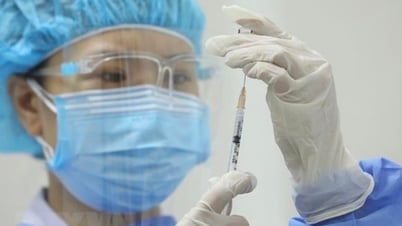



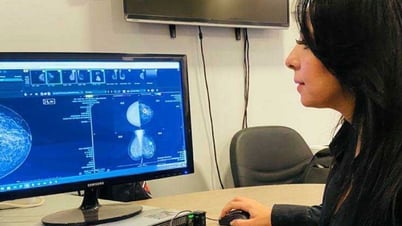

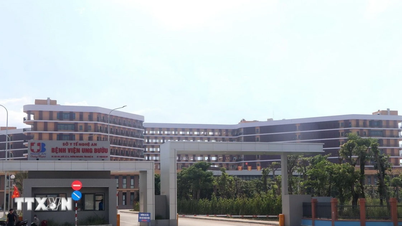
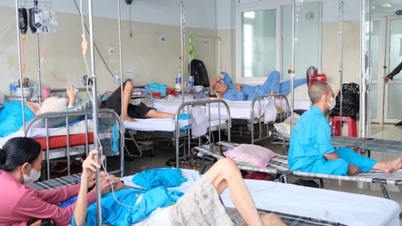

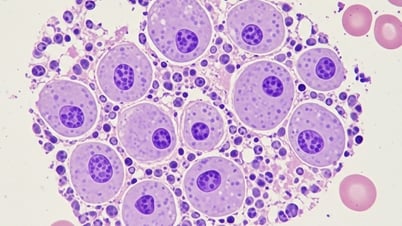

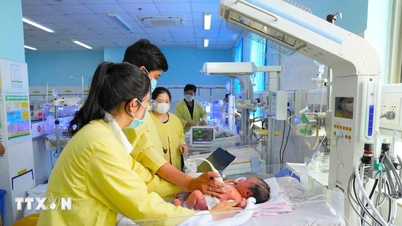

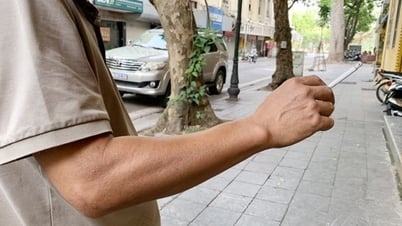












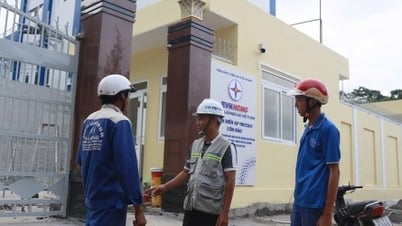






























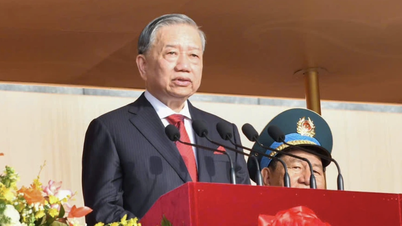






































Comment (0)